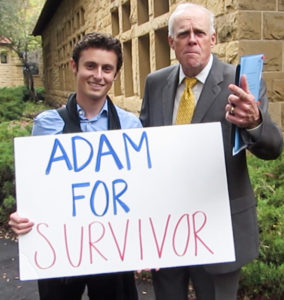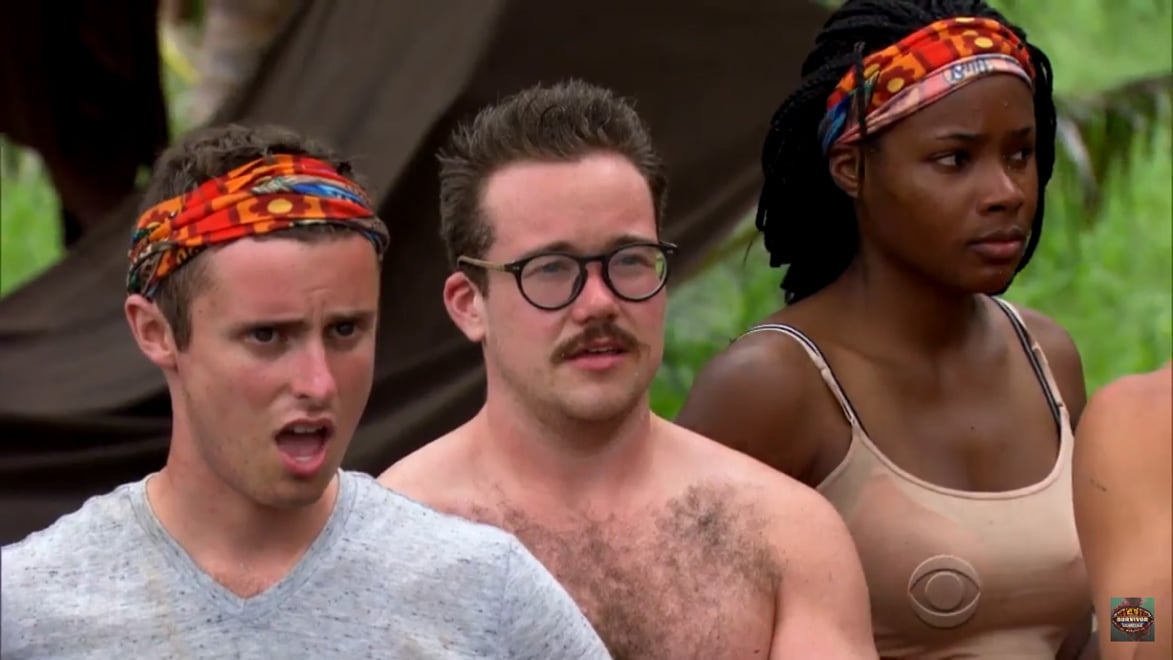Stanford alumnus Adam Klein ’13 is a contestant on the newest season of the CBS reality show “Survivor.” The show maroons a group of contestants in the wilderness, where they have to survive and compete in challenges for rewards. Contestants are voted off until a sole survivor wins the season. The newest season, Season 33, focuses on the clash of the generations: Generation X and the Millennials.
In conjunction with joining “Survivor,” Klein has launched a campaign to raise funds for lung cancer research and has worked at LifeMoves, a nonprofit organization that provides shelters to the homeless in the Bay Area. The Daily sat down with Klein to discuss “Survivor” and his work outside the show.
The Stanford Daily (TSD): How did you first learn about “Survivor?”
Adam Klein (AK): The first episode I ever watched was the finale of Season 1. At the time, I thought, “Who would ever do this? This is crazy!”

And then, week by week, year by year, I would watch it every single week with my family. It would be one of those things we would watch as a family. The more I watched, the more I felt — based on strategy and the way the people interacted with each other socially — that “Survivor” was the most interesting social experiment on television. There’s no greater challenge, physically and mentally, than the game of “Survivor.”
I’m the type of person, when I set a goal, I’m going to go 100 percent until I accomplish that goal. My goal became to get on “Survivor.” I did everything I could possibly do. I asked [former] President Hennessy to endorse me in my audition video. I also made a Facebook group, in which a lot of Stanford students joined. And it worked out.
TSD: What is your favorite part of “Survivor?”
AK: My favorite thing about “Survivor” is that it’s an incredible story. I think it’s the classiest reality TV show out there. It takes real people and shows their real stories. There’s no manufactured drama because the format creates conflict. The idea that you have to vote someone out at the end of each episode makes it that, while everyone in your tribe is working together and making friends… they’re also your enemies in the game… To me that has been fascinating and it has been even more so when you get out there on “Survivor.”
TSD: What sets you apart from the rest of the contestants?
AK: I may have been chosen for the case because I represent a different kind of Millennial. I’m focused on the nonprofit world. I’ve always tried to use whatever talents or energy I have to try to make some kind of impact in my community and in the world.
I work for LifeMoves, a homeless shelter non-profit. We serve over 1,000 people a night in over seven different facilities and 17 different shelters. I’ve been involved in a number of different causes. Now, with my fleeting amount of time on “Survivor,” I would like to raise as much money as possible for lung cancer.
My mom had stage IV lung cancer and recently passed away. I know that I can only imagine that my story in many ways will be her story, and I just hope that the country will fall in love with her. [I also want the country to] see that even healthy non-smoking women like my mom can get lung cancer and we need to do better in finding a cure. I’m launching a campaign to raise money for lung cancer research.
TSD: Can you talk more about this campaign to raise money for cancer research?
AK: When my mom passed away, I knew I was going to be on “Survivor” in the fall. I can only hope her story will really resonate with people… Every single day my mom was alive, she lived life to the fullest. And I know she would want me to do the same. I want to use “Survivor” as an opportunity to bring some meaning to my mom’s life and death and ultimately help other families not have to experience the type of pain my family has experienced.
It’s not very often that you get to be on national television, in front of 11 million people all around the world, and I don’t want to let that go to waste. I’d like to raise some money for lung cancer research, fight this disease, bring some attention to lung cancer and remind people that lung cancer victims don’t deserve their disease. I think there’s an implicit bias that if you got lung cancer, you did something along the way to get it. As a result, lung cancer research gets a fraction of funding that other issues get. I want to use “Survivor” as an opportunity to shine a light of this.
I’d also like to say thank you to the Stanford community for supporting my dream and for helping to make it a reality.
Due to CBS’s confidentiality policy, The Daily was unable to ask questions directly related to events on “Survivor” and Klein’s experience on the island where the show is being filmed.
This transcript has been condensed and lightly edited.
Contact Christina Pan at capan ‘at’ stanford.edu.
